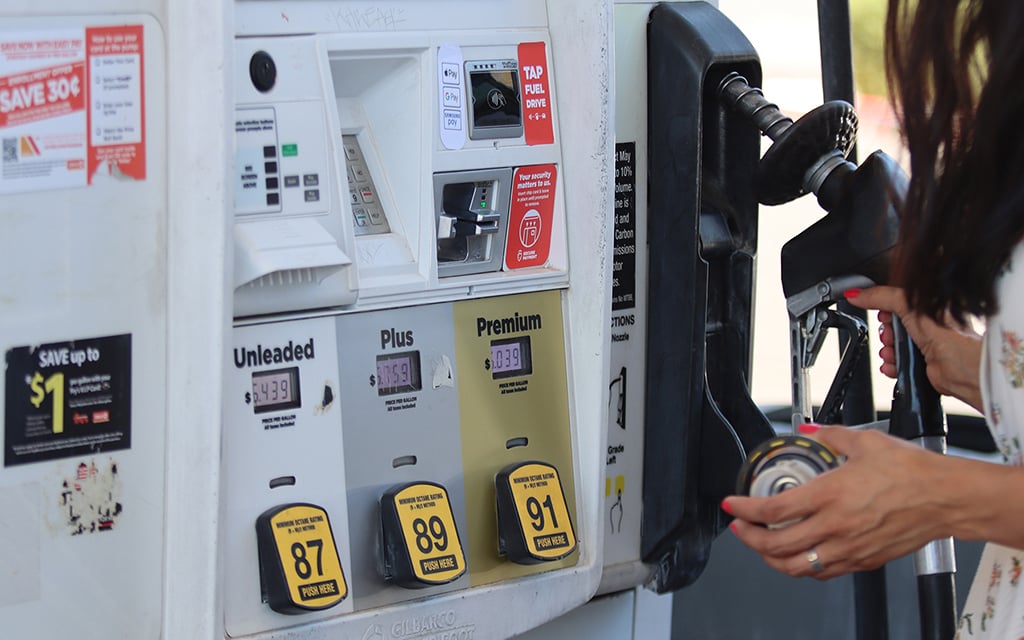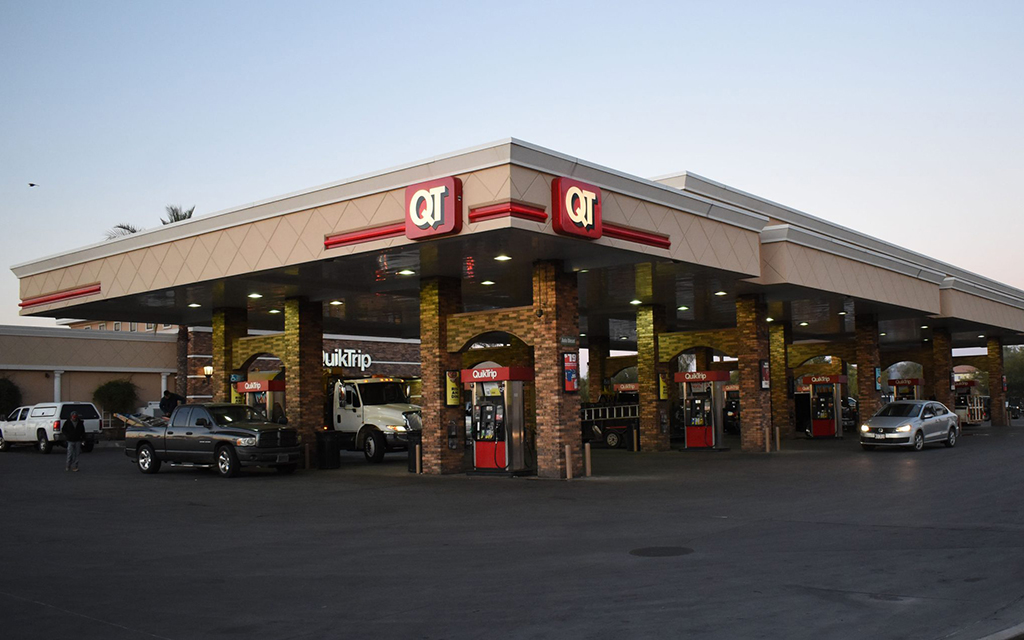
Cleaner Burning Gasoline is required in parts of Arizona under a state implementation plan from 1997 to comply with the National Ambient Air Quality Standards and the Clean Air Act. It is only sold in Maricopa County and parts of Pinal and Yavapai Counties. (File photo by Omar Iakub/Cronkite News)
PHOENIX – A joint committee of the Arizona Legislature held a hearing on Monday to discuss high gas prices in Maricopa County and how to lower them, but experts testified that lowering prices could take years.
The Republican chairs of the Joint Legislative Ad Hoc Study Committee on Air Quality and Energy called the hearing after claiming that Arizona Gov. Katie Hobbs’ administration didn’t do enough to mitigate a shortage of Cleaner Burning Gasoline, a unique blend of gas that is required in Maricopa County to reduce emissions.
Cleaner Burning Gasoline, or CBG, is required under a state implementation plan from 1997 to comply with the National Ambient Air Quality Standards and the Clean Air Act. It is only sold in Maricopa County and parts of Pinal and Yavapai Counties.
Michelle Wilson, a regulatory compliance administrator with the Arizona Department of Agriculture, gave a presentation to the committee about CBG and the difficulties in obtaining it.
“It’s a unique gasoline blend, it’s not sold anywhere else in the United States,” Wilson said at the hearing. She said the Environmental Protection Agency “has already moved on from what we have adopted, they have new requirements that are different.”
Due to the Arizona requirement, when the refineries face shortages, gas prices in the Valley can increase. This occurred earlier this year after shortages at two refineries in New Mexico and Texas led to gas prices over $5 in May.
The state can request a waiver to use alternative gasoline blends, but the waiver must be approved by the EPA. After being questioned by Republicans on whether or not the Hobbs administration asked for a waiver, Wilson said the EPA indicated in March it would not approve one, so no waiver was requested.
When asked about the potential of changing to a different boutique gasoline that would still be less polluting, Wilson said it could be possible but would require a statute change, a rulemaking process at the Arizona Department of Agriculture and EPA approval. Wilson said the state has already been waiting years for EPA approval of a revision to the state implementation plan for air quality, and another revision is currently going through the rulemaking process.
Republican lawmakers asked experts if changing the gasoline blend used in Maricopa County would stabilize prices.
Gordon Schremp, an energy policy consultant who also testified before the committee, said there were a few different options for preventing shortages, and the process to pursue any of them would be lengthy.
“It’s a long process, unfortunately, whether one wants to do additional modeling, testing, a revision … it’s going to take a while,” Schremp said.
Additionally, Schremp said lawmakers would have to consider whether current gasoline suppliers – which are all outside of Arizona – would be willing to supply a different blend of gasoline based on the modifications needed to produce those types of gas.
In a statement released after the hearing, Sen. Frank Carroll, R-Sun City West, said House and Senate Republicans are considering legislation to move away from CBG because of perceived inaction by the Hobbs’ administration in seeking a waiver for alternative gasoline types earlier this year.
“We plan to analyze potential changes to policy to protect Arizonans from these irresponsible actions by the Executive Branch and reckless big government overreach,” Carroll wrote in the statement.
The governor’s office, Arizona House Democrats and the Arizona Senate Democratic Caucus did not respond to requests for comment.

